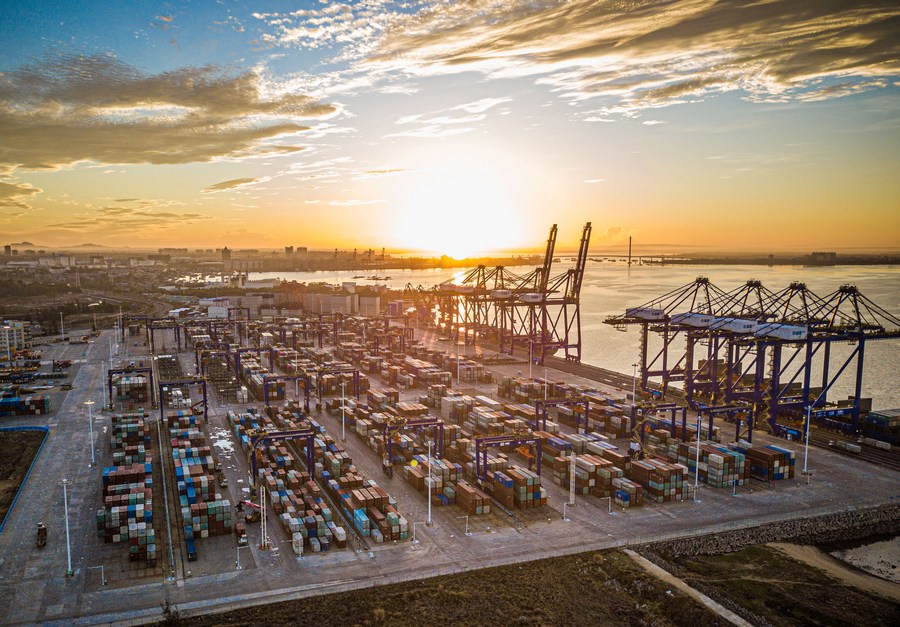
Aerial photo taken on May 26, 2021 shows the Yangpu international container port at Yangpu economic development zone in South China's Hainan province. [Photo/Xinhua]
China has further downsized the 2021 negative lists for foreign investment, to expand high-level opening-up and facilitate high-quality economic development, the Ministry of Commerce and the National Development and Reform Commission said on Monday.
A negative list is a special administrative measure related to foreign investors' access to specific fields of business.
The items restricted to foreign investors have been cut to 31 at the national level, declining by 6 percent from last year, in the newly unveiled negative lists coming into effect on Jan 1.
For pilot free trade zones, the items were cut to 27, down by 10 percent, according to a statement by the NDRC on its official WeChat account.
"The constant downsizing in the negative lists is a strong signal that China has been stepping up efforts to open wider," said Zhou Mi, a senior researcher at the Chinese Academy of International Trade and Economic Cooperation.
That will help shore up both Chinese and global economic growth, Zhou added.
According to the NDRC's statement, the automobile manufacturing industry will see the removal of the cap on foreign ownership in passenger car manufacturing. Restrictions on a foreign investor establishing more than two joint ventures in China to produce the same vehicle product will also be lifted.
Restrictions on foreign investors producing on-ground receiving facilities and key components for satellite television and radio broadcasting will be lifted, and foreign and domestic investment will be treated equally.
Zhou, from the academy, said the new arrangements will boost the allocation of resources in related sectors, and will especially accelerate the development of the FTZs.
"The wider opening-up in the manufacturing sector will attract more foreign investment, which will spur technological development and innovation in China, and it will help China achieve its national high-quality development agendas such as those on energy preservation, environmental protection, and climate commitments," he said.
The FTZ negative list has removed restrictions on foreign investment in the manufacturing sector in FTZs, and restrictions will also be reduced in the services sector.
Restrictions on foreign investors' access to market research in FTZs will be lifted, but Chinese investors must be the controlling shareholders of enterprises in the radio and TV ratings survey sector.
Foreign investors in FTZs are also allowed to enter the social research industry, on the premise that shares held by Chinese enterprises should not be less than 67 percent, and the legal representatives must be Chinese citizens.
Moreover, the NDRC said that domestic enterprises engaged in sectors prohibited for foreign investment must obtain approval from the relevant authorities before getting listed overseas.
Overseas investors will not be allowed to get involved in corporate management, and caps on overseas investors' shares are subject to regulations on overseas investment in domestic markets.
Lu Feng, a professor of economics at the National School of Development, which is part of Peking University, said as China continues opening-up and improves practices to attract foreign investment, foreign investors' confidence will be bolstered.